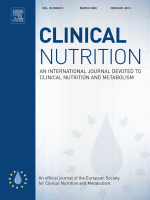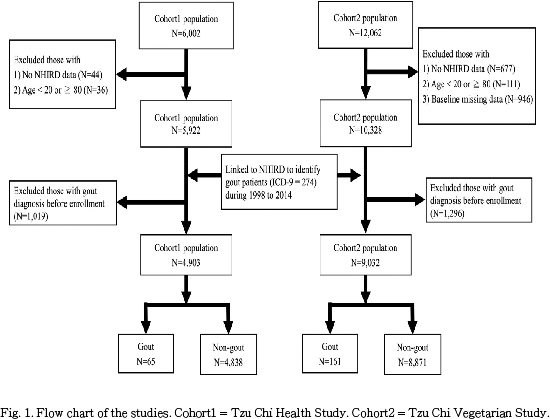Featured Scientist

Author published in "Clinical Nutrition" affiliate to
Tina H.T.Chiu
Department of Nutritional Science,
Fu-Jen Catholic University, New Taipei City, Taiwan
Article published in
"Clinical Nutrition" Volume 39, Issue 3, March 2020, Pages 837-844
Vegetarian diet and risk of gout in two separate prospective cohort studies
Backgrounds & aims
Plant-based diets may target multiple pathways in gout pathogenesis (uric acid reduction and anti-inflammation) while improving gout associated cardiometabolic comorbidities. We aim to prospectively examine the relationship between a vegetarian diet and gout, and to explore if this relationship is independent of hyperuricemia.
Methods
We followed 4903 participants in the Tzu Chi Health Study (Cohort1, recruited in 2007–2009) and 9032 participants in the Tzu Chi Vegetarian Study (Cohort2, recruited in 2005) until end of 2014. Baseline serum uric acid was measured in Cohort1. Vegetarian status was assessed through a diet questionnaire that includes dietary habits and a food frequency questionnaire. Incidence of gout was ascertained by linkage to the National Health Insurance Database. Hazard Ratio of gout in vegetarians versus nonvegetarians was assessed by Cox regression, adjusted for age, sex, lifestyle and metabolic risk factors. Hyperuricemia was additionally adjusted in Cohort1.
Results
In Cohort1, lacto-ovo vegetarians had the lowest uric acid concentration, followed by vegans, then nonvegetarians (men: 6.05, 6.19, 6.32 mg/dL, respectively; women: 4.92, 4.96, 5.11 mg/dL, respectively); 65 gout cases occurred in the 29,673 person-years of follow-up; vegetarians experienced a lower risk of gout (without adjustment for hyperuricemia: HR: 0.33; 95% CI: 0.14, 0.79; with adjustment for hyperuricemia: HR: 0.40; 95% CI: 0.17, 0.97). In Cohort2, 161 gout cases occurred in the 83,019 person-years follow-up, and vegetarians also experienced a lower risk of gout (HR: 0.61; 95% CI: 0.41, 0.88).
Conclusion
Taiwanese vegetarian diet is associated with lower risk of gout. This protective association may be independent of baseline hyperuricemia.
